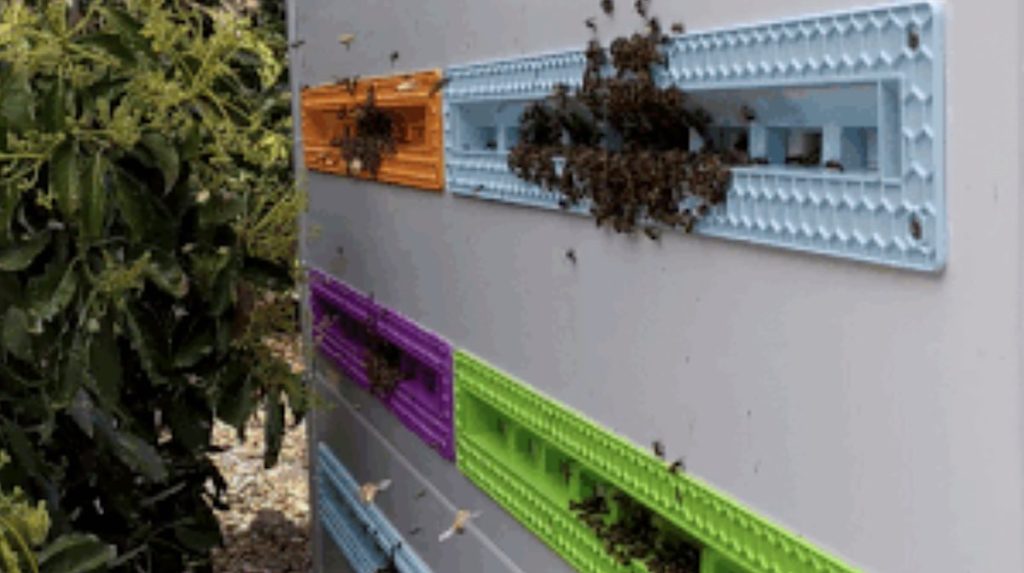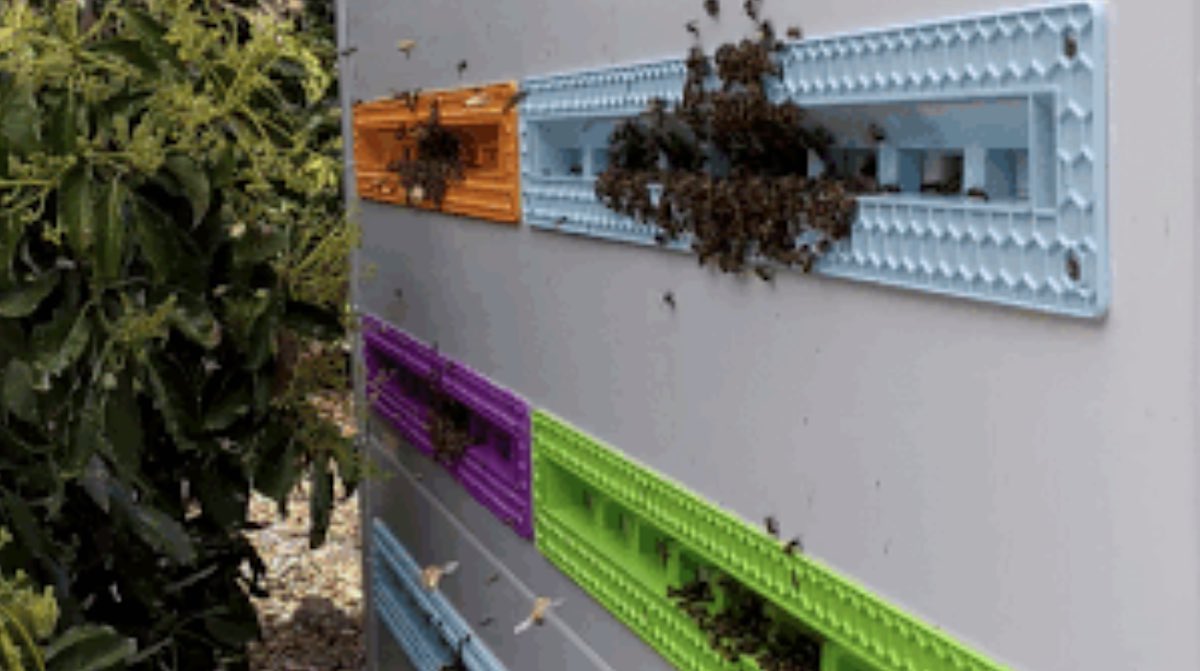
Across the world, people and governments are banning pesticides and planting more pollinator-friendly flowers to boost bee populations naturally.
Now farmers and beekeeers also have a way to protect bee colonies that are crucial for growing crops, by using robotic hives that protect pollinators from any hazard.
The traditional hive most commonly used in the world today (the Langstroth box) was designed by humans about 150 years ago. Most people are so used to them they mistakenly confuse them with bees’ natural habitat.
By completely redesigning the beehive, a company called Beewise was able to address many of the inefficiencies of the box and significantly improve bees’ well-being and life longevity.
Their mission to save bees recently received an $80 million funding boost for their autonomous hive.
Utilizing 24/7 monitoring and smart technology that significantly increases pollination capacity and honey production, Beewise’s proprietary robotic beehive, the Beehome, seamlessly detects threats to a honeybee colony such as pesticides and the presence of pests and immediately defends against them.
Its automatic robotic system responds to threats in real time and requires no human intervention. To reverse the trend of colony collapse, Beehomes are thermally regulated, and can provide protection from fires, flooding, and Asian Wasps (murder hornets). The hive even feeds the honeybees when local food supply is not available.
In a statement, the company says, “Beehome reduces bee mortality by 80%, resulting in increased yields of at least 50%, while eliminating approximately 90% of manual labor when compared to traditional beehives.”
Beewise currently manages more than seven billion bees, which equates to 25,000 acres of pollinated crops. Through the Beehome device, the Israeli startup says it has saved over 160 million bees over the course of the last 12 months.
RELATED: Bees Have a New, Lifesaving ‘Vaccine’ to Make Them Immune to Pesti-Side Effects
“We are deploying precision robotics in tandem with the world’s most innovative technologies including AI and computer vision in order to save the bees,” stated Saar Safra, CEO of Beewise.
He says that with thousands of orders placed in the U.S. in just the last few months, their new funding will allow Beewise to meet the market demand through increased manufacturing.
Beewise also unveiled a new lighter-weight Beehome—32% smaller and 23% more cost-effective to transport—which increases hive mobility, enabling farmers to effortlessly care for millions of bees and ensure seasonal crop pollination.
While the rest of the market treats threats from Varroa mites with chemicals, Beewise’s revolutionary solution uses a chemical-free, heat, and robotics approach to achieve 99.7% success rate. The robot heats frames to a point where it harms the pests (Varroa) but does not harm the bees’ brood. Watch the video below to see how it works.
The Beehome’s automated feeding system “significantly increases bee colonies’ survival rate over winter when food sources are scarce—and the monitoring is powered by solar panels and small batteries, all run by an app.
Every Beehome can house 24 full-fledged colonies in an 8-foot x 6-foot box and costs $400 per month, on top of a delivery fee. The boxes are GPS-protected, so the owner always knows where it is. There is also an automatic alert to the beekeeper if Beehome is being moved.
WATCH: Woman Saves Bees By Rescuing Hives From Old Buildings With Her Bare Hands
“Beewise impressed us as the only solution addressing every complex issue that is contributing to the collapse,” stated Daniel Aronovitz, Principal at Insight Partners, one of the funders. “Not only have we funded a company with a fantastic business model; it also addresses one of the biggest challenges our planet is facing. We at Insight couldn’t be more excited.”
The company is currently serving the North American market but hopes to provide, eventually, the same protection for commercial beekeepers worldwide.
CREATE Some Buzz For Bee Lovers By Sharing on Social Media…





















This is fabulous and I really wish the company well on this venture.
I’m a huge advocate for honey bees. Hope to raise a colony of bees someday soon. Yeah, I truly wish this company well! Technology to the rescue.